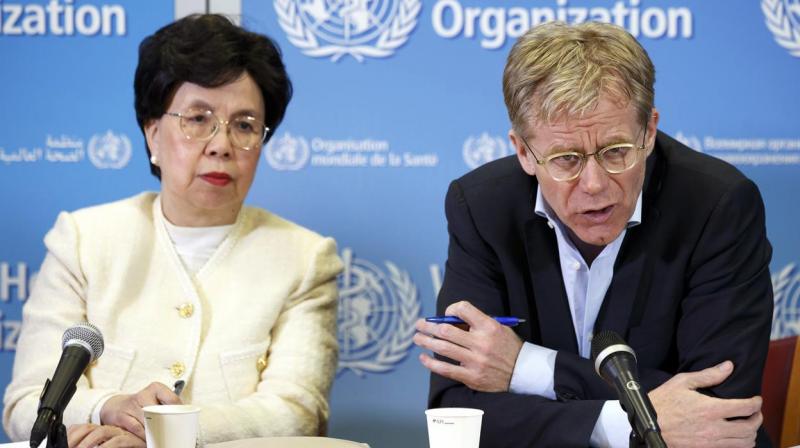WHO spends more on travel of their associates than AIDS and hepatitis
Last year, WHO spent about USD $71 million on AIDS and hepatitis. It devoted USD $61 million to malaria.

London: Dr. Margaret Chan, director-general of the World Health Organization, traveled to Guinea earlier this month to join the country’s president in celebrating the world’s first Ebola vaccine.
After praising health workers in West Africa for their triumph over the lethal virus, Chan spent the night in the top-tier presidential suite at the beach-side Palm Camayenne hotel. The suite, equipped with marble bathrooms and a dining room that seats eight, has an advertised price of 900 euros (USD $1,008) per night.
Some say such luxurious accommodations send the wrong message to the rest of WHO’s 7,000 staffers.
According to internal documents obtained by The Associated Press, the United Nations health agency routinely has spent about USD $200 million a year on travel expenses, more than what it doles out to fight some of the biggest problems in public health, including AIDS, tuberculosis and malaria combined.
Last year, WHO spent about USD $71 million on AIDS and hepatitis. It devoted USD $61 million to malaria. To slow the spread of tuberculosis, WHO invested USD $59 million. Still, some health programs do get exceptional funding the agency spends about USD $450 million trying to wipe out polio every year.
WHO declined to say if it paid for Chan’s stay at the Palm Camayenne in Conakry, but noted that host countries sometimes pick up the tab for her hotels.
At a time when the cash-strapped health agency is pleading for more money to fund its responses to health crises worldwide, it has struggled to get its travel costs under control.
Senior officials have complained internally that UN staffers break new rules that were introduced to try to curb its expansive travel spending, booking perks like business class airplane tickets and rooms in five-star hotels with few consequences.
“We don’t trust people to do the right thing when it comes to travel,” Nick Jeffreys, WHO’s director of finance, said during a September 2015 in-house seminar on accountability a video of which was obtained by the AP.
Despite WHO’s numerous travel regulations, Jeffreys said staffers “can sometimes manipulate a little bit their travel.” The agency couldn’t be sure people on its payroll always booked the cheapest fares or that their travel was even warranted, he said. “People don’t always know what the right thing to do is,” Jeffreys said.
Ian Smith, executive director of Chan’s office, said the chair of WHO’s audit committee said the agency often did little to stop misbehavior.
“We, as an organization, sometimes function as if rules are there to be broken and that exceptions are the rule rather than the norm,” Smith said.
Earlier that year, a memorandum was sent to Chan and other top leaders with the subject line “ACTIONS TO CONTAIN TRAVEL COSTS” written in capital letters. The memo reported that compliance with rules requiring travel to be booked in advance was “very low.” The document also pointed out that WHO was under pressure from its member countries to save money.
Travel would always be necessary, the memo said, but “as an organization we must demonstrate that we are serious about managing this appropriately.”
In a statement to the AP, the UN health agency said “the nature of WHO’s work often requires WHO staff to travel” and that costs were reduced 14 percent last year compared to the previous year although that year’s total was exceptionally high due to the 2014 Ebola outbreak in West Africa. But staffers still are openly ignoring the rules.
An internal analysis in March, obtained by the AP, found that only two of seven departments at WHO’s Geneva headquarters met their budget targets and concluded that the compliance rate for booking travel in advance was between 28 and 59 percent.
Since 2013, WHO has paid out USD $803 million for travel. WHO’s approximately USD $2 billion annual budget is drawn from the taxpayer-funded contributions of its 194 member countries; the United States is the largest contributor.
After he was elected, US President Donald Trump tweeted : “The UN has such great potential,” but had become “just a club for people to get together, talk, and have a good time. So sad!”
Some health experts said while WHO’s travel costs look out of place when compared to some of its disease budgets, that doesn’t necessarily mean the agency’s travel expenses are inflated.

